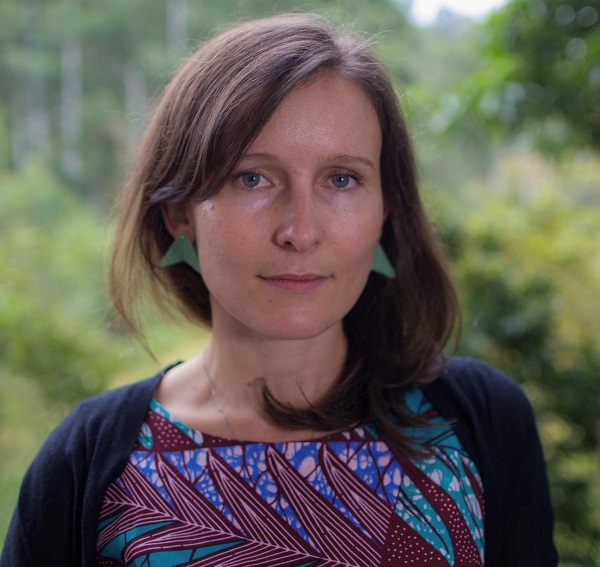Esteemed African music lecturer appointed at NWU School of Music
Staff and students at the NWU School of Music were delighted and excited to welcome Dr Cara Stacey. She was appointed as the new senior lecturer in African Music from 1 July.
Staff and students at the NWU School of Music were delighted and excited to welcome Dr Cara Stacey. She was appointed as the new senior lecturer in African Music from 1 July.
The director of the School of Music, Dr Yvonne-Marié Brand, expressed her excitement: “It is a strategic goal of the NWU School of Music to develop African Music studies. Specialists in this discipline already have great admiration for Dr Stacey’s scholarship and we believe she will make an invaluable contribution as lecturer, researcher, composer and performer,” says Brand.
Dr Stacey’s colleagues consider her to be an eminent teacher, composer, researcher and performer, playing both piano and various southern African musical bow instruments. She has completed a master’s degree in musicology at the Edinburgh University, Scotland, and a second Master’s degree in Performance at the School of Oriental and African Studies, London. Her PhD was jointly conferred by the University of Cape Town and SOAS and focused on the makhoyane musical bow instrument from eSwatini.
Besides her research publications and conference presentations, locally and internationally, Cara has also recorded three albums, the latest of which was released on 3 July. She has performed across southern Africa, in the United Kingdom, Brazil, Peru, the USA and Switzerland. She is the founder of the Betwixt concert series with cellist Nicola du Toit and also performs with the Cape Town-based Night Light Collective.
Just before the start of the lockdown, she returned from a visit to the University of Illinois Urbana-Champaign, USA, as World Music Scholar in Residence. She also serves on the executive committee of the South African Society for Research in Music – the liaison officer for eSwatini at the International Council of Traditional Music.
African music played an intrinsic role in this friendly lecturer’s youth. She was born in Jozi and spent her early childhood in Yeoville. At the age of twelve, her family moved to eSwatini (formerly Swaziland) where they lived just outside Mbabane. Cara then moved to Cape Town when she started her BMus degree at UCT.
“My parents always listened to a lot of different types of music when I was growing up, including a lot of different African music – West and Central African pop and all sorts of southern African music. It was when I was studying at UCT that I really started thinking about learning to play some of these southern African instruments,” she says. She started taking lessons with the brilliant musicians at UCT like Dizu Plaatjies and Tinashe Chidanyika at the time.
Cara primarily plays the makhoyane gourd-resonated musical bow, which comes from eSwatini and the Xhosa umrhubhe and uhadi bows. The umrhubhe is a mouth-resonated bow and the uhadi is a gourd- resonated bow.
“Most of my research has been into the makhoyane and the musicians who still play this instrument in eSwatini. The first musical bows I came into contact with were the umrhubhe and uhadi in my lessons with Dizu Plaatjies. He is a master bow player himself. Once I was familiar with these, I began investigating the makhoyane bow,” she says.
She had never come across a player of this instrument while living in eSwatini. According to her, the makhoyane is quite rare and so she only ended up meeting players a few years later. “Before and during my doctoral research in eSwatini, my primary teachers of the makhoyane were Gogo Khokhiwe Mphile and Mkhulu Bhemani Magagula,” Cara reflects.
Dr Stacey lives and works in Johannesburg but is hoping to travel to Potchefstroom soon. “Whenever in-person lectures resume, I will be traveling between Potchefstroom and Johannesburg.”
 Her latest album, “Like the Grass”, draws on a concert she did when she was on a ProHelvetia Studio Residency in Basel, Switzerland, in 2018. “I was based in Basel for a few months during that year, composing music and collaborating with local musicians there. We recorded the final concert, a collaboration between Swiss guitarist, Beat Keller; German harp player, Antonia Ravens; the South African violinist and composer, Galina Juritz and myself. I had created a graphic score, which we played and also improvised freely,” she says.
Her latest album, “Like the Grass”, draws on a concert she did when she was on a ProHelvetia Studio Residency in Basel, Switzerland, in 2018. “I was based in Basel for a few months during that year, composing music and collaborating with local musicians there. We recorded the final concert, a collaboration between Swiss guitarist, Beat Keller; German harp player, Antonia Ravens; the South African violinist and composer, Galina Juritz and myself. I had created a graphic score, which we played and also improvised freely,” she says.
After the residency, the musicians have decided to put out a shortened version of the live recording. They have asked some of their favourite producers to remix the live material. The result is a record, half of which is the live recording, and the other half, remixes.
The album was released through the British label, Kit Records and came out on 3 July. Music lovers can listen to it on all streaming platforms and buy the vinyl through either Cara or Kit Records
Article by Venessa van der Westhuizen and originally published in Potchefstroom Herald






